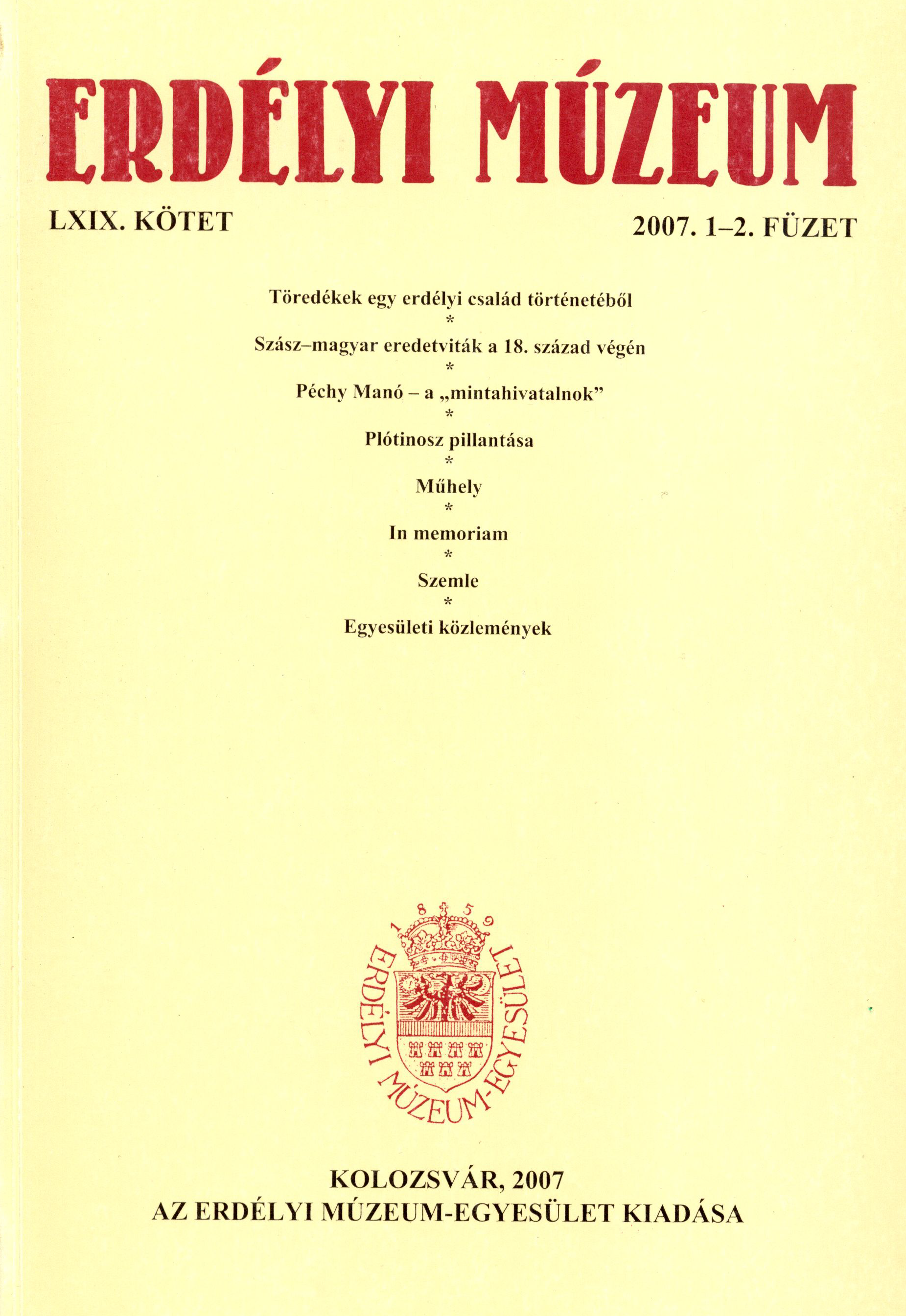Péchy Manó – a „mintahivatalnok”
Manó Péchy – a Model Clerk
Author(s): Judit PálSubject(s): Diplomatic history, 19th Century
Published by: Erdélyi Múzeum-Egyesület
Keywords: Manó Péchy; clerk; Habsburg Monarchy; the Union of 1867; Transylvania;
Summary/Abstract: Manó Péchy, presented in detail in this article, was the Lord Lieutenant of Transylvania in the period after the Compromise of 1867, and as such he had the duty to "conduct" the integration of Transylvania into the Habsburg Monarchy. Péchy, however, was not just a clerk, but a prototype of the conservative bureaucrat, loyal and pliant to the new political system, and in that having an important effect on shaping this period. Péchy was born in a newly-advanced ministerial aristocratic family in Boldogkőváralja (Abaúj county). He started his political career as deputy of Abaúj County in the assembly of 1839-40. His political pragmatism und conservative commitment and loyalty eamed him promotion to the post of Lord Lieutenant-Governor for Zemplén County between 1841 und 1848.The year 1848 was a breaking point in Péchy’s career. He retired to the country und renounced any office-holding activity in the years of the neo-absolutism. Péchy returned for a short time to his previous public career in December, 1860, when he became the Lord Lieutenant of Abaúj County. In 1861, however, he retired from office until 1865. One might say that Péchy’s career before 1867 is for a typical Lord Lieutenant. After 1867 the union of Transylvanian to Hungary was re-enacted. For the transition period of the integration,Count Manó Péchy was appointed as Lord Lieutenant. One can assume that the prime minister, Count Gyula Andrássy himself, nominated him for this position. First of all, his main duty was to put Transylvania's integration into practice und to set people's minds to ease concerning the ethnic and religious conflicts. This did not prove to be an easy task. Péchy was not familiar with the particular Transylvanian social und ethnic realities. Thus, the maneuvering between different parties und interests was difficult. The majority of the Hungarian liberals that came into power had a strong belief in the idea of a centralized nationstate. This model, however, could not be combined with structures of Transylvanian autonomies. The office of Lord Lieutenant gradually lost its significance after the end of the Gubernium in 1869. Then, in 1872, the government declared the union of Transylvania settled. Afterwards Péchy kept up links with Transylvania, being a Member of Parliament for Cluj from 1872 for three terms, although his connections to the Transylvanian policy became more und more slack. The fusion in 1875 between the two main political parties, led by Ferenc Deák and István Tisza, was a turning point in Hungarian political life. A new elite was born that brought a new governing style und concept. Still, Péchy kept his ministerial attitude und loyalty to the governing elite until his death. His path of life shows clearly that behind every successful politician there are the loyal civil servants who operate the political systems by their services that span different regimes.
Journal: Erdélyi Múzeum
- Issue Year: LXIX/2007
- Issue No: 1-2
- Page Range: 33-61
- Page Count: 29
- Language: Hungarian

